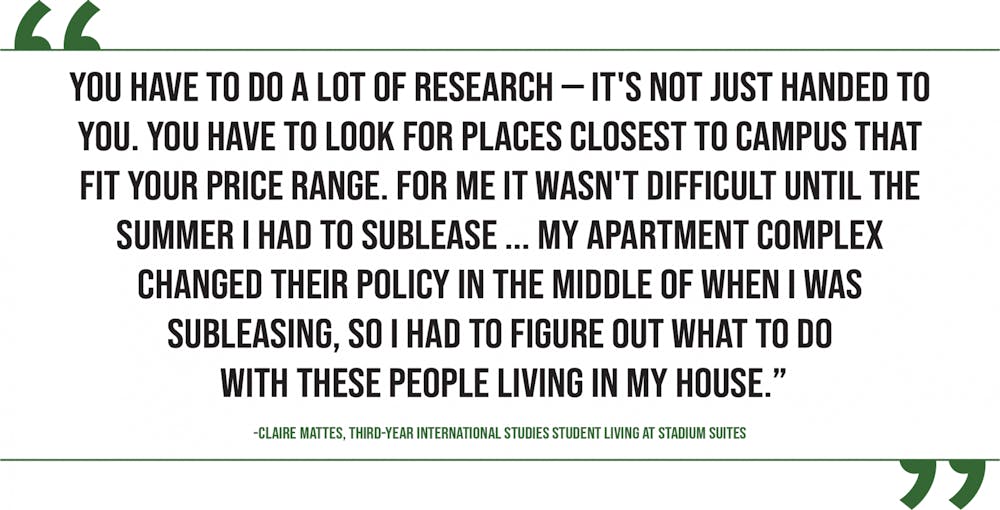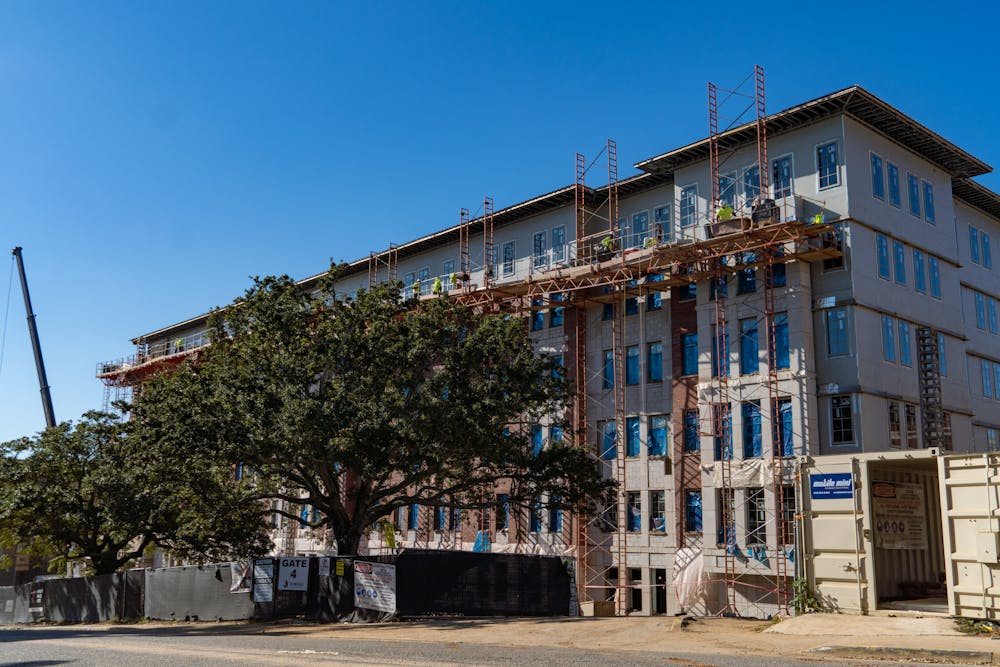Housing applications for students to live on campus next year are on the horizon. With the struggles of signing leases and searching for roommates off-campus, students should take advantage of the opportunity of having more options to stay on campus.
The university announced in late September that more than 2,000 beds will be available for upperclassmen to live in during the 2023-2024 school year. Housing options include dorms in the upcoming Campus village, the Horseshoe, the Quads and Park Place.
Housing applications for continuing students open on Nov. 1, with room selection beginning on Nov. 15.
Living on campus means students are closer to classes, dining halls and student organization meetings, which can benefit students' involvement and education. Being a part of a community and feeling welcomed is the best way to enhance the college experience and create a closer student body.
“Living on campus creates that sense of community — a sense of belonging. We have an awesome first-year experience because our students are clustered together and meeting new people,” Josh Wise, director of strategic initiatives for University Housing, said.
Allowing all students to live in proximity to each other creates a close knit community and a better experience for students.
“Modeling those things that made your experience great by living here is something that just creates a bigger and better Gamecock community,” Wise said. “Our studies have shown that students that live on campus have higher GPAs ... they also have a lot more support.”
The distinct opportunity for an improved housing process for second, third, and fourth-year students to live on campus provides a chance for students to live in residence halls exclusive to upperclassmen.
“With the additional beds that we have available, we are making apartment-style living that is continuing-student only,” Wise ensures.
New benefits for continuing students include a non-contractual obligation until rooms are selected, as well as priority selection based on academic courses.
A non-contractual obligation means continuing students will gain the ability to choose and update roommate selection and residence halls until they finalize selecting a room. Room selection is expected be finalized as soon as possible to ensure that continuing students get the rooms and buildings that they are looking for.
Priority selection will be based upon educational requirements and the academic year of continuing students, with upperclassmen students having priority. Some buildings such as 650 Lincoln and those in the Horseshoe will require students to be in the Honors program.
Off-campus students have a contractual obligation which means they are legally bound to the property and have to find a way to sublease while not home during the non-school months. Apartments such as The Rowan, Nine at Columbia and 21 Oaks all have 12-month leasing agreements. On-campus living does not require the need for a 12-month lease, so students don't have to worry about subleasing if they decide to study abroad, graduate early or go home for the summer.
“For me, financially it was the best decision, time-wise it’s the best decision. I’m just not the kind of person that really wants to commute every day,” Larsyn Vandermast, a third-year visual communications student working for University Housing, said. “I think it forces you to really meet people. It really forces you to learn the campus.”
The improved process of living on campus after your first year can help students save time and avoid commuting. By doing this, students can continue involvement and create connections which are great ways to amplify the college experience.
“You have to do a lot of research — it's not just handed to you. You have to look for places closest to campus that fit your price range,” Claire Mattes, a third-year international studies student living at Stadium Suites said. “For me it wasn't difficult until the summer I had to sublease ... My apartment complex changed their policy in the middle of when I was subleasing, so I had to figure out what to do with these people living in my house.”

From policy changes to the search for housing itself, it's tough for students to be able to easily access housing off campus. By living on campus, subleasing is not an issue and it's not hard to search for a place to live. Since residence halls are close to academic buildings and dining halls, there isn't much difficulty when it comes to making the choice of where to live on campus.
The ability for continuing students to stay on campus is beneficial for commuting, involvement on campus, academic support and success. This opportunity is available to all continuing students and should be used to improve students' education and needs at USC.

